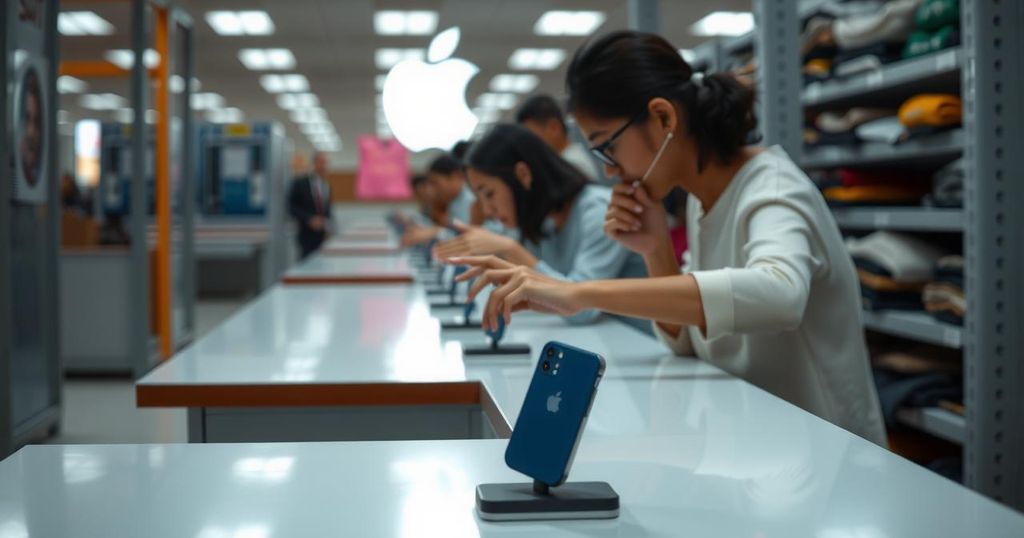Congo Lawyers Welcome Apple’s Supply Chain Change, Seek Verification of Claims
International lawyers for the Democratic Republic of Congo praised Apple’s decision to end mineral sourcing from the region amidst escalating conflict. However, they have initiated criminal complaints against Apple in France and Belgium for allegedly using conflict minerals. The Congo’s legal representatives urged for verification of Apple’s supply chain claims as they continue their legal pursuit against the company.
International lawyers representing the Democratic Republic of Congo (DRC) have expressed both approval and caution regarding Apple’s recent decision to cease sourcing minerals from the region due to increasing conflict. They filed criminal complaints against Apple subsidiaries in France and Belgium, alleging the use of conflict minerals in the company’s supply chain. The DRC is a significant supplier of tin, tantalum, and tungsten—collectively known as 3T minerals—commonly found in electronic devices. However, the use of minerals from artisanal mines controlled by armed groups has raised serious ethical concerns according to United Nations and human rights organizations.
In response to the allegations, Apple maintains that it does not directly procure these primary minerals, instead enforcing audits and funding initiatives aimed at enhancing mineral traceability. The company announced a halt in sourcing these minerals from the DRC and Rwanda as it considered the growing conflict in the region as impeding proper due diligence. Although Apple welcomed by stating that it had informed suppliers to suspend sourcing tin, tantalum, tungsten, and gold from the DRC and Rwanda, it did not provide a timeline for when suppliers received this notification.
The DRC’s lawyers emphasized that while Apple’s statements were a step in the right direction, they must be verified with concrete evidence. They asserted, “Apple’s statements about changes to its supply chain will have to be verified on the ground, with facts and figures to support them.” Moreover, they underscored that the repercussions of past actions cannot be overlooked and that the French and Belgian judicial authorities must now adjudicate the matter regarding the alleged complicity of Apple in these crimes.
The ongoing conflict in the eastern regions of the DRC has resulted in immense humanitarian tragedies, with millions displaced and countless civilian lives lost due to clashes between armed factions and the military. This conflict, deeply intertwined with the lucrative mineral trade, further complicates the situation, as armed groups often finance their activities through the mineral exports, which may be laundered through international supply networks.
The Democratic Republic of Congo is rich in valuable minerals such as tin, tantalum, and tungsten, used extensively in electronics. However, the mining sector has been marred by conflict, particularly in the eastern regions, where armed groups exploit artisanal mines. This has raised alarm among international human rights organizations and prompted legal actions against corporations that inadvertently benefit from this violence. Apple has undertaken measures to ensure that its supply chain is free from conflict minerals, yet the effectiveness and sincerity of these measures remain under scrutiny.
In summary, while Apple’s recent commitment to cease sourcing minerals from the DRC is a welcome development, the implications of past actions cannot be overlooked. Legal proceedings in Europe might compel further scrutiny into the company’s practices. The DRC’s situation illustrates the integral link between resource extraction and human rights, highlighting the need for rigorous verification of corporate policies in conflict zones. The coming legal decisions will be significant in assessing Apple’s accountability in these matters.
Original Source: www.investing.com




Post Comment